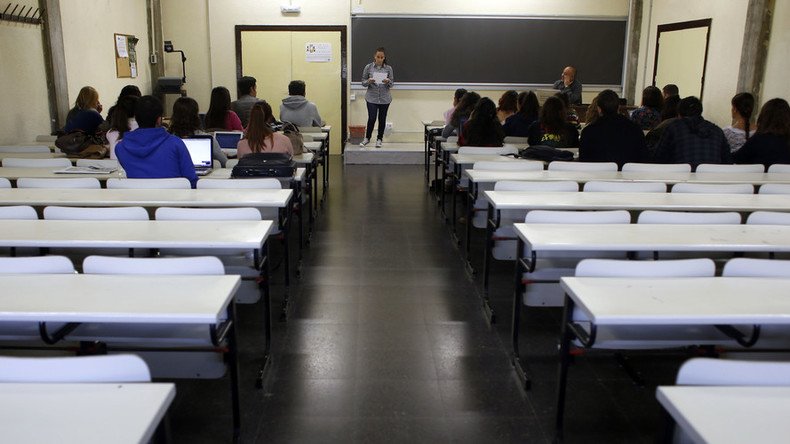Linguistic Brexit? Communication breakdown as fewer Brits learn European languages

European language study is in decline due to ‘identikit’ travel, fewer exchange programs and the government’s dropping of GCSE requirements, a University of Bristol academic believes.
In an article on the Conversation website published on Tuesday, University of Bristol language expert Martin Hurcombe argues that the decline in language studies between GCSE and degree level had become an “annual lament.”
Hurcombe cites a study by the British Council, which states the number of students taking a French or German A Level has declined by 50 percent since 1999. The same research found GCSE entries for French had declined 40 percent between 2005 and 2015.
Hurcombe says the dip coincides with shifts in education policy and travel culture.
“Ironically, it was perhaps Britain’s most pro-European government, under Tony Blair, which removed the requirement for all children to take a language at GCSE in 2004,” he writes, adding that there has been a parallel decline in international exchange programs at state schools since the late 1990s.
“According to the British Council only 39 percent of state schools currently offer an exchange where students stay with a host family in another country,” Hurcombe said.
“Identikit” holidays in which cultural contact is kept to a minimum may also have played a part in the downturn.
“Week-long holidays to the Algarve or southern Spain often bring little in the way of cultural exchange,” he argued, adding that Europe can sometimes be reduced to time spent in “airports that resemble each other” and “the ubiquitous Starbucks.”
He referred to these as the “identikit sites of global tourism.”
Unmentioned by Hurcombe, however, is the government’s interest in students learning non-European languages, with Mandarin Chinese high on the agenda.
In a 2013 British Council report into language education, strategy director John Worne said the UK must make up for a shortfall in Arabic, Japanese and Chinese language skills.
“If we don’t act to tackle this shortfall, we’ll lose out both economically and culturally,” Worne said.
“Schools have their job to do, but it's also a problem of complacency, confidence and culture – which policymakers, businesses, parents and everyone else in the UK can help to fix,” he added.











